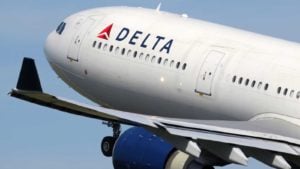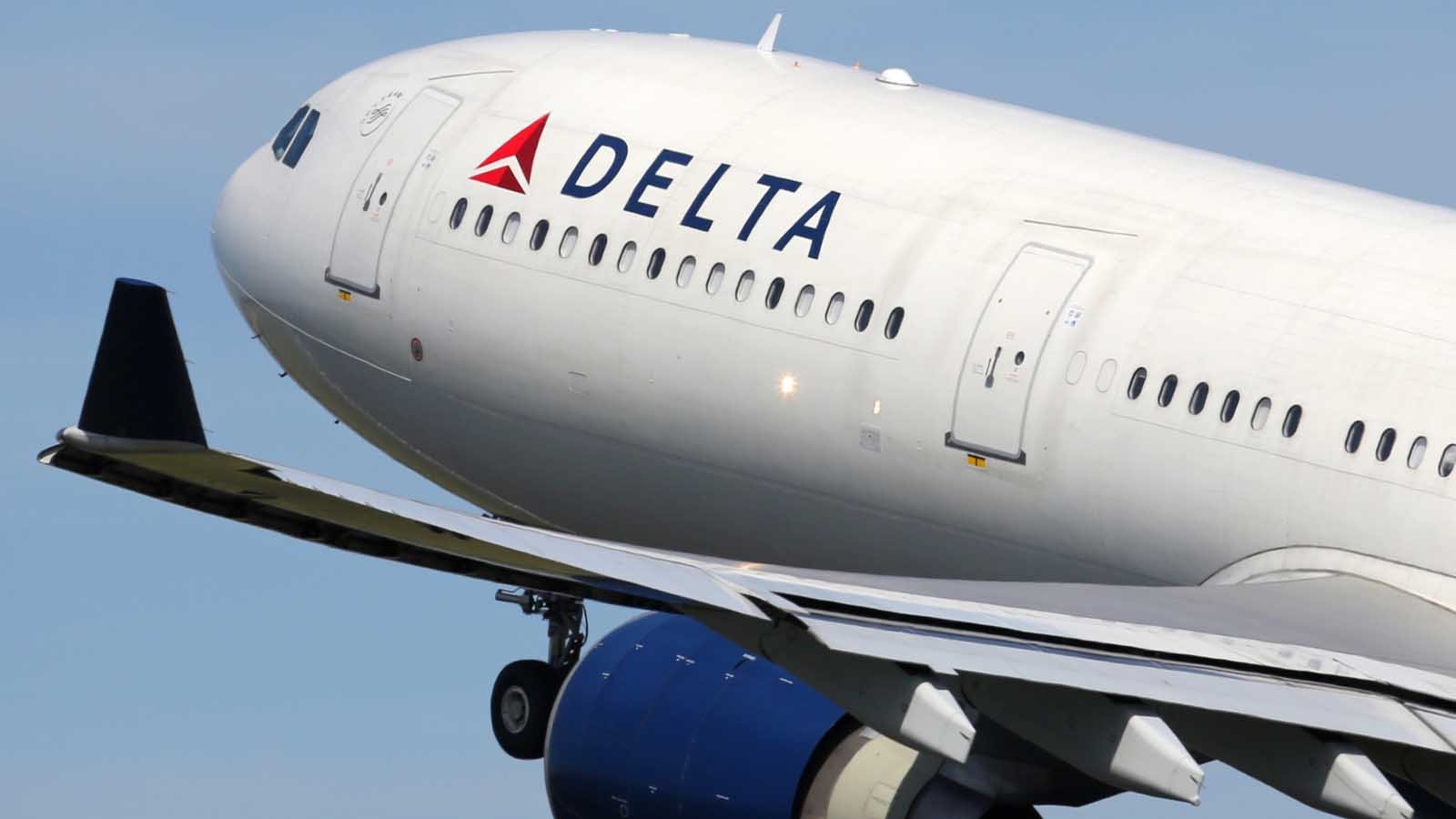There’s no doubt that the generous dividend offered by Delta Air Lines (NYSE:DAL) has been one of the best reasons for holding DAL stock.

For the immediate future, however, those payments are at an end.
Delta stock has been bushwhacked along with the rest of the airline industry in recent weeks, seeing its stock plunge 45% year-to-date – and that’s even taking a recent positive surge into account.
The board earlier this month suspended dividend payments for the immediate future. And numerous media reports indicate Delta and other companies that receive federal bailout money will be restricted from offering dividends as long as they have outstanding loans from the government.
Without its dividend, how does Delta stock rate among airlines? Let’s take a closer look.
DAL Stock at a Glance
Delta CEO Ed Bastian has already said Delta’s revenues will plunge about 80% – or roughly by $10 billion – in the second quarter. The company grounded more than 600 of its 1,340 aircraft as it cut capacity by 70%.
On the payroll side, Bastian says more than 10,000 of Delta’s 91,000 employees have taken a voluntary unpaid leave package.
Even after those cuts, however, Delta says it is burning through about $50 million a day.
Looking at Delta’s debt obligations, the company reported at the end of 2019 having $2.9 billion in cash against $11.2 billion in debt and finance leases, $6.1 billion in operating lease liabilities and $14.4 billion in adjusted net debt. Delta’s adjust net debt as a percentage of 2019 revenue was 31%.
This week, S&P Global Ratings downgraded Delta’s credit rating to junk territory, moving it from BBB- to BB. Delta recently secured a new $2.6 billion credit facility and drew down $3 billion from existing facilities.
Delta says it should close this quarter with “at least” $5 billion in liquidity, which will help it remain afloat. It also has airlines to borrow against – assuming it can find a customer in this climate.
Delta Will Be Smaller After It Recovers
Famed investor Warren Buffett of Berkshire Hathaway (NYSE:BRK.A, BRK.B) hasn’t been scared off by the airline industry’s downturn, and recently increased his stake in DAL by close to a million shares.
In fact, Berkshire now owns nearly 72 million shares of DAL stock, or roughly 11% of the company.
If you’re a disciple of the Oracle of Omaha, that’s an investment that gets your attention. But what will Delta look like after the COVID-19 coronavirus threat fades and people start flying again?
“We’re going to be smaller coming out of this,” Chief Financial Officer Paul Jacobson he told employees during an internal webinar. “Certainly quite a bit smaller than when we went into it, and we’ll have the opportunity to grow.”
Delta’s fleet is one of the oldest in the industry, averaging about 15 years. According to The Points Guy, a travel site that focuses on credit cards and loyalty programs, Delta planned to retire its McDonnel Douglas MD-88 and MD-90 jets this year as it becomes a “more modern, more nimble” fleet.
The company also has 100 Boeing (NYSE:BA) 757-200s and 56 767-300s, with many of them suitable for retirement.
“I would not be surprised to see not only Delta return as a smaller airline, but also American (NASDAQ:AAL), United (NASDAQ:UAL) and even Southwest (NYSE:LUV) use this as an opportunity to cull some aircraft from their fleet,” Atmosphere Research president and founder Henry Harteveldt told TPG. “The question every airline will wrestle with is ‘what is the right number.’”
The Bottom Line for DAL Stock
Delta’s dividend made it unique among its peers. With a yield of more than 5% and an annualized payout of $1.61 per share, Delta’s dividend was more generous than American (2.6%) or Southwest (1.8%). United didn’t even offer a dividend. But those payments are sadly at an end.
And although the coronavirus downturn is destroying DAL’s dividend as well as its profitability this year, the company appears to have a solid plan to rebuild its business.
Dividend investors will surely miss DAL stock’s dividend, but in this case, all good things must come to an end. In the long term, Delta has the best potential amongst its peers to come out of this downturn in decent shape.
There will be a lot of short-term pain with airline stocks in 2020 and into 2021. But if you are looking at a long investment window, then Delta’s deeply discounted shares can’t be ignored.
Patrick Sanders is a freelance writer and editor in Maryland, and from 2015 to 2019 was head of the investment advice section at U.S. News & World Report. Follow him on Twitter at @1patricksanders. As of this writing, he did not hold a position in any of the aforementioned securities.
